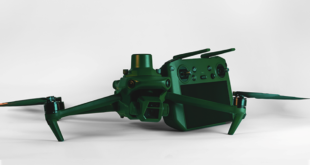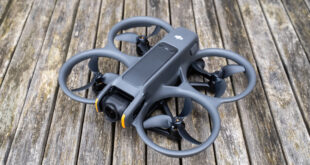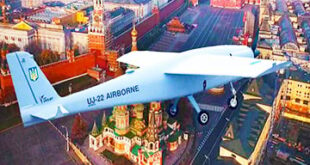Amid severe labor shortages, the use of unmanned aerial vehicles to perform human tasks is sure to grow, and DJI, the world’s biggest drone-maker, is ready to respond, the firm’s Japan head said.
Drones for industrial uses ranging from agriculture to infrastructure maintenance and security are becoming more popular, said Allen Wu, DJI’s head of Japan operations. But he said he is doubtful about the potential for drone-based product delivery.
“For quite some time, we’ve figured that our main market in Japan is industrial, so our team has been focusing on it more,” Wu said in an interview Wednesday.
Shenzhen-based SZ DJI Technology Co. dominates the global drone market and according to reports is estimated to have a market share of more than 70 percent.
Wu said sales of drones for general consumers in Japan hardly grew in 2018 compared with 2017, but sales of drones for industrial use jumped by 40 percent.
Sales of multicopters for agricultural use, such as spraying pesticide from the air, saw an 80 percent surge, while demand for other tasks including surveying, security and infrastructure maintenance are also rising, according to Wu.
Although the outlook for industrial drone use is bright, it will take some time to set rules or standards for each task, he said.
Tunnels, towers and dams are all infrastructure, but standards for maintenance using drones are different for each one, said Wu, who was interviewed on the sidelines of the three-day Japan Drone expo, which kicked off Wednesday at Makuhari Messe in Chiba Prefecture.
At the business-oriented expo, DJI is displaying business solutions in collaboration with other companies. For instance, it is showcasing a service jointly developed with Microsoft Corp. and Nippon Systemware Co. to check cracks in buildings via drones.
“To provide value for (industrial) customers, we can’t do it alone after all,” said Wu, adding that DJI plans to work with various firms to facilitate business applications.
Given that Japan has a graying society and is plagued by labor shortages, more companies, particularly in the construction sector, will replace jobs that do not have to be handled by humans with drones, Wu said.
But when it comes to logistics, he said drones are not fit for the task in Japan.
The government is hoping to kick-start product delivery not only in rural areas but also in cities sometime in the early 2020s. Companies such as Japan Post Co. and Rakuten Inc. have been experimenting with drone delivery recently.
“Drones can’t fly when it rains or if strong wind blows. In that case, you have to eventually hire people to deliver packages,” he said.
He added that drones are unlikely to carry heavy items while their batteries are expensive.
On top of that, Japan’s logistic services are already convenient enough.
“In Tokyo, you can get an item delivered in one day. There is no point in using drones,” he said, adding that developing safety and flight infrastructure would be especially hard in busy cities.
As for the consumer market, Wu said the ratio of drone sales among general customers is quite low compared with other territories. Globally, 80 percent of DJI’s sales comes from the consumer segment, with the ratio being 50 percent or less in Japan.
That’s probably because general users in Japan follow drone flight rules more strictly than those in other countries, Wu said.
Yet sales of other imaging devices, such as the Osmo Pocket, an ultra-compact handheld video camera equipped with a stabilizer, have been robust in Japan, he said.
 Unmanned Aerial Vehicle The latest drone news
Unmanned Aerial Vehicle The latest drone news



